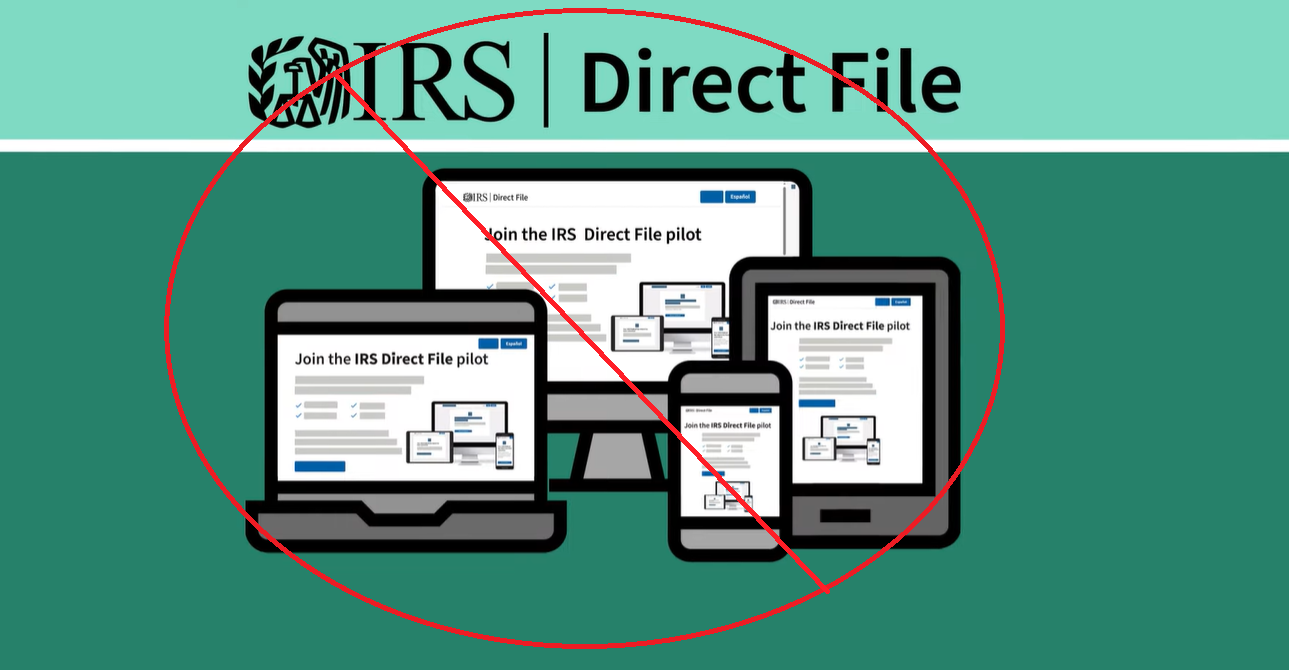By David B. McGarry, InsideSources.com (TNS)
Tax Day looms, and the taxman cometh. It is a certainty, as Ben Franklin said.
This year, the IRS has launched a pilot program dubbed “Direct File” through which Americans can opt to have the IRS prepare their taxes for free (well, except for the billions of taxpayer dollars used to create the program).
The IRS wants to eliminate Americans’ reliance on private-sector tax-preparation services. Despite its recent trendiness in certain circles, Direct File has little potential for good—and much for bad. In addition to the pilot program’s dubious legality, there are many fiscal and prudential reasons not to trust the IRS with this new responsibility.
Adding a federally operated competitor to a market does not equate to providing or promoting competition, as some of its advocates have argued—not in any traditional usage. Nobody would consider creating a federal grocery store, a federal airline or a federal movie studio as a pro-market or pro-competitive policy. State-run enterprises enjoy the profoundly anti-competitive advantage of bearing the imprimatur of the state, and they are not subject to the ordinary competitive pressures to which private businesses must remain sensitive and respond.
Neither does a Direct File system seem likely to provide a valuable service to taxpayers. The proposed system’s very conceit clangs against the American legal and political tradition, in which adversarial actors’ opposition to one another is an indispensable guardian of liberty and good governance. This combative friction—the defense lawyer against the prosecution, Congress against the presidency, the states against the federal government—ensures (in theory, at least) that no one faction or institution has a smooth route to self-interested injustice.
The IRS proposes to excise such friction. The agency wants to file the citizen’s taxes, collect that money, and double back to conduct audits—without any mediating institution to gainsay potential (nay, likely) abuse. Washington politicians and bureaucrats certainly should not promote its adoption. Low-income and minority taxpayers—whom IRS auditors target disproportionately and whom the IRS would likely market Direct File most energetically—have perhaps the most significant interest in retaining private intermediaries such as TurboTax or TaxSlayer.
What’s more, Direct File would not be “free,” as its advocates aver. Americans might not pay when filing their taxes, but those tax dollars would fund the digital infrastructure, personnel and other resources undergirding the system.
The IRS estimates Direct File to cost $64 million to $249 million annually, which seems wildly low. In 2021, researchers at Govini analyzed Direct File’s likely price tag against the experience of Healthcare.gov, concluding that the former’s costs would dwarf the latter’s. Govini reported the Obamacare website cost taxpayers $20.2 billion through October 2021.
An audit by the Treasury Inspector General for Tax Administration (TIGTA) could not confirm the IRS’s cost assumptions—nor could the agency meaningfully defend them. “When we asked the IRS for documentation supporting how it arrived at these various cost estimates,” TIGTA said, “it could not provide us with any.” This lacuna elicits no confidence in the IRS’s figures.
Besides such fiscal qualms, the IRS is an agency ill-suited to ameliorate the private-sector harms that proponents of Direct File have identified.
Consider the taxman’s record.
The IRS has failed routinely to prevent data breaches, including a 2022 incident in which the agency briefly published the personal data of 120,000 taxpayers. According to a 2022 Government Accountability Office report, from 2012 to 2021, “the IRS completed 1,694 investigations into the willful unauthorized access of tax data by employees.” The agency substantiated 462 cases as “violations” and left 380 cases unresolved.
Some say private tax preppers have targeted minority communities. But the IRS cracks down on such populations with gusto, auditing counties in predominantly Black and rural regions of the Deep South most frequently. “Audit rates are also very high in the largely Hispanic communities in south Texas, the counties with Native American reservations in South Dakota, and the poor, White counties in Kentucky’s Appalachia region,” MarketWatch reported in 2019. “In fact, the audit rates in these areas were more than 40 percent above the national average.”
The IRS is the ultimate economic bully. Its audits are notoriously ferocious and burdensome, and it has, at times, deployed its vast powers for unethical and politicized ends. What’s more, the agency’s customer-service capacity has proven painfully dismal, erecting further obstacles for would-be law-abiding taxpayers. Offering Direct File at scale would substantially increase the demand for customer and technical support, a demand the IRS could not likely meet.
The proper remedy to any issues with private tax preparation companies is to address discrete problems where they exist. Instead, advocates of Direct File propose to centralize still more power in one of Washington’s least responsible agencies, injecting a fully socialized competitor into the market and mucking up the basic principles of American governance.
ABOUT THE AUTHOR:
David B. McGarry is a policy analyst at the Taxpayers Protection Alliance. He wrote this for InsideSources.com.
_______
(This essay is available to Tribune News Service subscribers. TNS did not subsidize the writing of this column; the opinions are those of the writer and do not necessarily represent the views of TNS or its editors.)
©2024 Tribune Content Agency LLC
Thanks for reading CPA Practice Advisor!
Subscribe Already registered? Log In
Need more information? Read the FAQs




